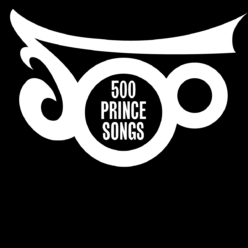Graffiti Bridge (1990)
If I could live inside any Prince song, it would be within the alluring world of Joy in Repetition. Either the studio recording or the ten-minute-plus live performance released on One Nite Alone… The Aftershow. Other versions exist but only these two go beyond the claustrophobic back-alley you see during its Graffiti Bridge scene, and into a hazy cloudland where bands play year-long songs and the minutes are measured out in reggae bass licks. They conjure a world full of poetry and wordplay, but if you wish to escape your incessant inner monologue there are places beyond the clouds where you can have your monkey brain obliterated by UV blasts of a guitar solo, excuse me… guitar sol. Here in the sky lies the landing place of Prince’s Hohner Madcat from the end of that Rock & Roll Hall of Fame performance. I bet if you threw that axe into the air it would turn into sunshine.
And why shouldn’t the sun purr with primal passion put through a guitar pedal? We’ve grown accustomed to its silence but there are stories of deaf people hearing for the first time and being surprised the flaming ball of gas in the sky doesn’t hum like an idling car engine. In Joy in Repetition’s world there’s no vacuum of space swallowing that fiery scream. For the people there, its roar is the soundtrack to the giddy terror of falling in love. They bask in its solar sonar embrace and fill their chests with the painful joy of sudden full submersion in another human being. But the route they take is full of pitfalls and trapdoors; the sun liable to duck behind clouds or lose its shine. Back in the club, the band know a different route. They are your sherpas to a sun-drenched summit that doesn’t feed on the diminishing returns of novelty. They lead you to an eternal love so perfect you cherish every repetition. In the words of Raspberry Beret: “I wouldn’t change a stroke”.
Prince describes getting caught in the undertow of the singer’s vocals. A two word mantra heard behind the beat. Love. Me. Like the Buddhist Om, its chant frees you of worldly desire. He begins to hear his own mind’s expression of that mantra – a voice of anguish, desperation and doubt. “Why can’t u love me… why don’t u love me..?” In the music, he learns to unmoor himself from that needy inner voice and to look behind it. Doubts begin to drip away like rain, along with the false belief in the separation between one soul and another. That’s why the song they play is called Soul Psychedelicide. It kills that hallucination of individuation and reveals a deeper truth. We are all one. In that perfect state of complete unity there is no I. No yearning. No other. Just the brilliant pure light of universal love. In this state of transcendence, holding someone isn’t trying to possess them – its reuniting with the cosmic infinitude. “A love solid as rock” as the dropped note in Graffiti Bridge reads, “a love that reaffirms that U are not alone.”


So happy to see this update. Love your writing; exceptional choice!
The Joy in Repetition guitar solo from One Night Alone is arguably his greatest “professionally” recorded solo.
So good.
When I first heard the bootleg, I had similar feelings. Then I got very angry when the evocative start was obscured on the official release by recycled ‘party chat’ from between Eye No & Alphabet St – a precursor to becoming permanently angry with the 90s version of Prince (barring sympathy for his child loss and respect for his fight against the industry monoliths). Now it just leaves me cold. What happened? Is there only joy in a certain amount of repetition? Do things cease to have meaning when over exposed? Bleached into the void. If I keep writing void, it will look like gibberish. Void void void void void…
Noooo. I refuse to believe the spell wears off. Otherwise I’ll be worried to listen to it again incase I exhaust my finite amount of repetitions.
You may have been awarded more listens than me. It’s a lottery.